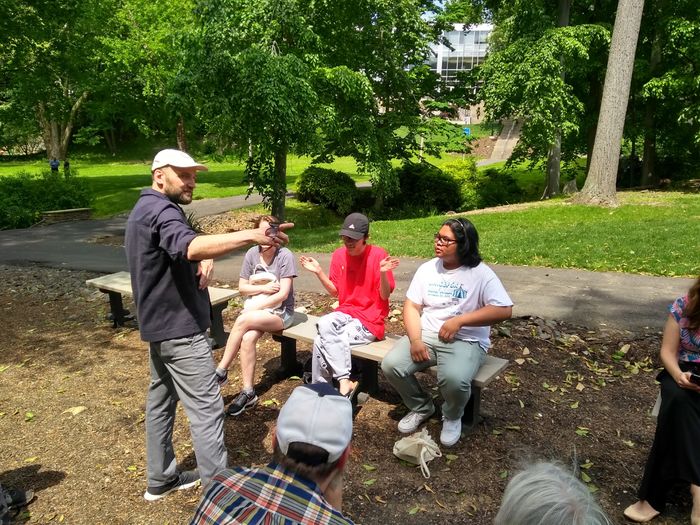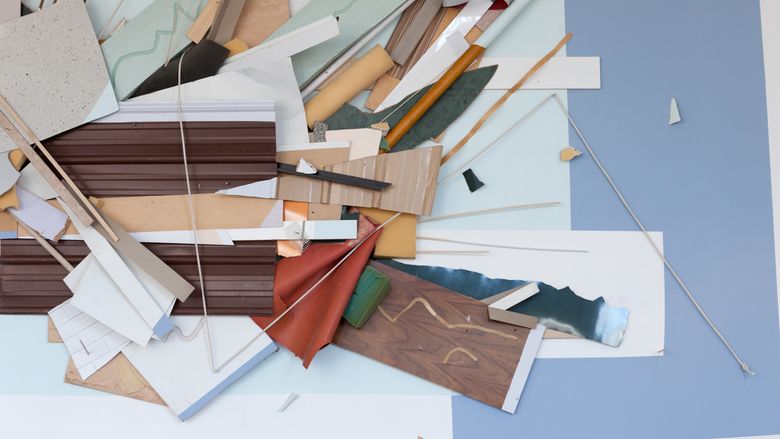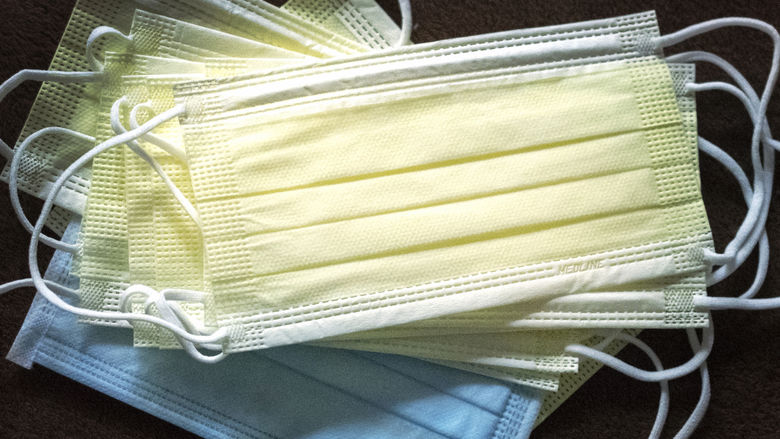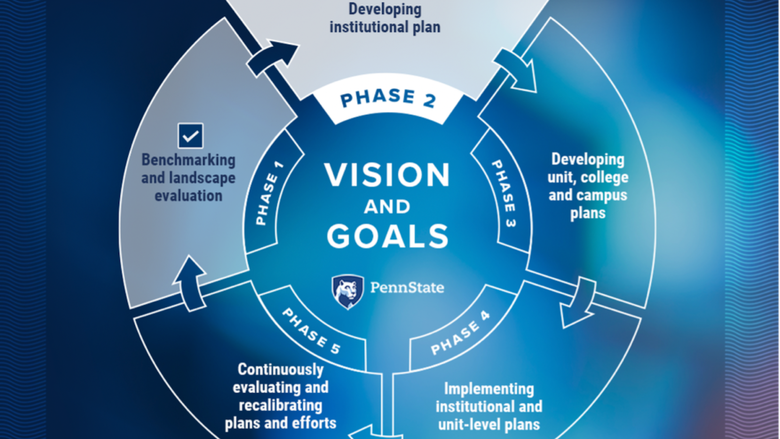UNIVERSITY PARK, PA – The Campus Arts Initiative (Campus Arts), a project of Penn State’s Strategic Planning Seed Grant program, has announced the first eight artist collaborators, which were selected from the more than 158 applicants who responded to a national open call.
Campus Arts is a cross-disciplinary project that aims to create site-specific visual art to engage communities in the spaces where they live and work every day. Eight partner locations across the Commonwealth were identified in January and the selected artists have each been paired with one of the high-impact locations from which they will take inspiration for the artwork. Project installations will begin in fall 2019.
A jury of 27 partner collaborators, outside arts professionals, students and faculty members selected a group of finalists from the artist open call and Penn State partners participated in a Public Art Academy and built committees to interview their artist finalists.
The project allows the site partners to work closely with the artists throughout the process to develop installations that connect to each space. The final selected artists visited the partner sites in May and were able to gain a deeper understanding of each location.
“Before the first sketch is placed on a sheet of paper, our selected artist worked to understand who we are and what we do to a degree that conveys their perceived value and interest in the project,” said David Fecko, industry relations coordinator for the Materials Research Institute, one of the selected sites. “The artist’s questions and comments, while seeing the building, were much along the lines of the questions that we might expect from potential research collaborators or industrial customers.”
For many of the partner sites, the art installations will provide an opportunity to engage students, faculty, staff and even the surrounding communities in a significant art experience and meaningful dialogue.
“By inviting our science faculty to share research on the spotted lanternfly and create a project around this theme, ‘Infestation of the Spotted Lanternfly,’ we hope to create a culture of interdisciplinary study and wonder,” said Ann Lalik, arts coordinator and gallery director at Penn State Lehigh Valley. “The spotted lanternfly is of great concern in this part of the state and we think this sort of initiative will also be interesting to the greater Lehigh Valley community, promoting the arts, the campus and environmental awareness.”
The initiative also aims to be a catalyst for interdisciplinary collaboration and student learning from the initial phase until long after the art is installed. One of the main goals of the initiative is to involve students in the process right from the beginning, including artist selection and project conception.
“I hope that this work of art will be a physical testament to the power of interdisciplinary collaboration,” said Matthew Levy, assistant professor of art history and arts administration at Penn State Behrend. “This project bridges our School of Humanities & Social Sciences with our School of Engineering, creating faculty and student partnerships that would not have otherwise existed.”
The selected artists and partners are as follows:
Adam Frelin, Center for the Performing Arts at Penn State (University Park)
Frelin, associate professor of art at the University at Albany, has exhibited at museums and galleries worldwide. He is collaborating with the Center for the Performing Arts on a new public artwork using light to animate its building façade.
Tamara Gayer, Center for Sexual and Gender Diversity (formerly LGBTQA Student Resource Center) (University Park)
Gayer is known for her colorful, large-scale installations and public projects. She frequently uses pattern, text, and bright color to communicate the histories of the sites she works in. Her collaboration with the newly named Center for Sexual and Gender Diversity will explore color and language as seen from the perspective of queer experience.
Lauren Herzak-Bauman, Penn State Behrend
Ohio-based sculptor and ceramic artist Herzak-Bauman will work in collaboration with plastics and engineering technology students and faculty at Penn State Behrend’s state-of-the-art plastics manufacturing laboratory to create a modular sculptural work. Arts administration students and faculty have been involved in the artist selection and site visit, and will continue to support the project through marketing and outreach.
Elsabé Dixon, Penn State Lehigh Valley
Dixon, based in Virginia, will work with entomologists at Penn State Lehigh Valley to explore issues related to the spotted lanternfly. She will create an installation based on her findings that encourages viewer engagement with issues surrounding this invasive species.
David Buckley Borden, Penn State Abington
Buckley Borden is an artist and landscape architect whose work explores ecological systems and how they are impacted by humans. He will collaborate with the Penn State Abington community to champion a cultural ecology supported by the arts, social psychology, and sciences. His work will be installed outdoors in the park-like setting of the Abington campus.
John Peña, Penn State Beaver
Based in Pittsburgh, Peña makes works of sculpture and public art exploring human relationships and interactions, with the natural world and with each other. Peña is engaging with groups of students at Penn State Beaver to mine ideas for a project that encourages students, staff and faculty to interact with the artwork over the duration of the upcoming school year.
Sean Capone, Penn State College of Engineering (University Park)
Capone is an animation artist based in Brooklyn, New York, who has exhibited his site-specific outdoors projections widely. Capone will create a dynamic animation for projection onto the College of Engineering’s Hammond building.
Encoded Objects, Penn State Materials Research Institute (University Park)
Encoded Objects is a collaboration between artists Jonathan Rockford and Michael Hadley. Rockford and Hadley’s work explores connections to the built and natural environments through the lens of technology. Their project for MRI will reframe the complex work being done at the institute to yield new insights.
The Campus Arts Initiative is founded on the premise that works of art have the capacity to resonate deeply, shape impressions, stimulate curiosity, and contribute to research and scholarship. Campus Arts offers a scalable, cross-disciplinary model for collaborative engagement. Its projects will be viewed by thousands of people every day, engaging the communities where Penn Staters live and work, creating distinctive and transformative experiences.
For more information on these projects, visit the Campus Arts Initiative website or follow the project on Instagram @campusarts_psu.



